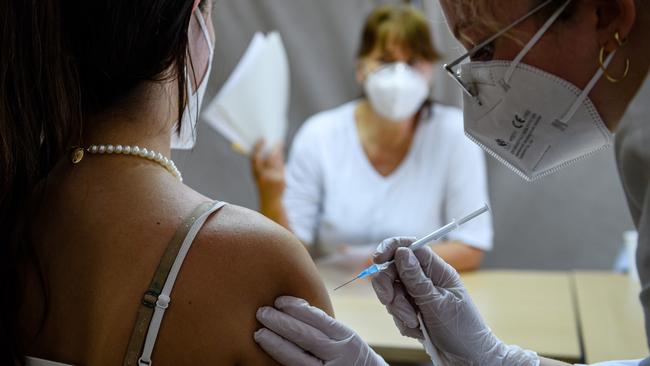Removing Covid vaccine protection is patently a mistake

While the details of the Biden administration’s proposals remain unclear, one option involves a commitment by the US not to exercise its rights under international intellectual property treaties.
Those treaties contain safeguard clauses which allow signatories to override patents in national emergencies; however, they also allow the signatories whose interests have been harmed to trigger a dispute and seek compensation. By waiving its rights, the US would effectively allow the patented technologies to be used without a licence.
But the mere fact that such options exist hardly means that they are desirable. The current problem is not that patent holders are monopolistically withholding supply: rather, it is that they cannot produce as much as they would like to. As a result they are scrambling to invest in expanding capacity.
Under those circumstances, it seems positively perverse to respond by reducing their incentive to invest, as well as that of capital markets to provide them with the funds they require. And the harm wreaked to the companies’ incentives to boost capacity is unlikely to be offset by an increase in production capacity elsewhere.
It is true that some developing countries, such as India and Brazil, have reasonably sophisticated pharmaceutical industries which can manufacture conventional vaccines, such as those being made by Astra-Zeneca. But Astra-Zeneca is already supplying its vaccines at cost, and has entered into licensing arrangements with third parties to help it meet demand.
However, producing messenger RNA-based vaccines is altogether more complicated, and unlicensed production could readily result in fatal errors. Access to the patents alone, unaccompanied by substantial transfers of proprietary know-how, would not allow timely and safe production.
BioNTech, which took a decade to develop its mRNA manufacturing process, says that validating production sites could take up to a year and, presumably, longer for sites built for other producers. And the problems are likely to be especially great in developing countries, which are much less hindered in their efforts to produce vaccines by patents than by broader difficulties in managing technology transfer.
The Biden gesture would therefore do nothing to address the immediate challenge. But its long-term consequences could be devastating. With COVID mutating extremely rapidly, large-scale investment is needed to ensure vaccines remain effective.
The current generation of mRNA vaccines is merely a first step. There should be many future generations that push the technology forward — but that too will require massive and highly risky investments in R&D.
Unfortunately, the economics of producing vaccines have always been very marginal. Signalling to investors that their returns can be readily expropriated for the sake of grand gestures will make the investments seem even less attractive. If the Biden administration really wants to help developing countries, there is a more sensible alternative.
It could seek congressional approval for the export to those countries of at least part of its vaccine stockpiles. And it could purchase, at a fair market price, the relevant intellectual property rights, along with the know-how needed to put them to work, from their owners. It could then license them freely, with controls against illicit or unsafe use, to third parties.
But this is an age of gesture politics — and this one is every bit as grandiose in theory as it is poorly conceived in practice. Here, truly, is the socialism of fools.
Henry Ergas is a columnist for The Australian and Jonathan Pincus is Distinguished Public Policy Fellow of the Economics Society .



Grand gestures make poor policies, and the proposed removal of patent protection on COVID-19 vaccines is no exception.